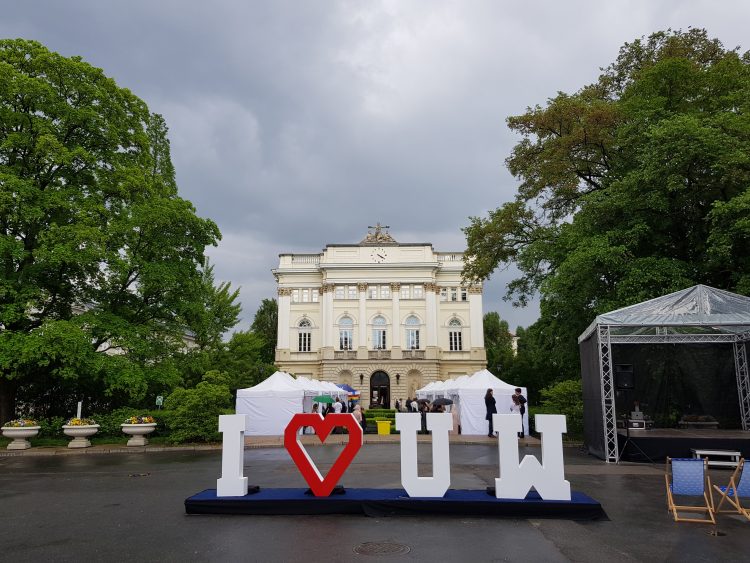A few days ago I attended the DARIAH Annual Event 2019, the conference that brings together the DARIAH community. DARIAH is an European Commission ERIC for a Digital Research Infrastructure for the Arts and the Humanities, gathering a network of of people, expertise, information, knowledge, content, methods, tools and technologies from its member countries to enhance and support digitally-enabled research and teaching across the arts and humanities.
Sally Wyatt, with whom I had the great pleasure to collaborate during my PhD at the eHumanities Group, gave a brilliant keynote on how “data” is too flat a term/ontology to convey the complexity of people, events, and things as objective, scientific and neutral artifacts — often assuming that all “data” is digital (which is far from reality). I can fully recommend the talk in all its detail, especially when it comes to the words and metaphors we use in data science (they matter). My question could only be about the role of ontologies and knowledge graphs to explicitly (and semantically) describe these data, their meaning, and their provenance; but semantics is, often, not enough.
My next takeaway was the DARIAH Theme Call — the growing efforts of DARIAH to fund research projects. Even with little resources I had the impression they all delivered greatly. For instance, via hackathons a project in France publishes Linked Data in a SPARQL endpoint –showing great penetration of semantic technologies in this community– with linked and tagged entities and geo and graph visualizations. Similarly, another project dealt with ethics of postcolonial digital archives. The Community engagement WG published a really nice book on their lessons learned (a booklet PDF is available here). I also really liked the DARIAH Digital Art, Science and Technology Institution Network.

The poster session was lots of fun — I didn’t really have the chance to talk to other presenters since I was busy presenting my own poster on the FAIR data principles and their importance in AI & Music research. I got a got pulse in this community when showing work like the MIDI Linked Data cloud, from surprising angles including ethical concerns of automatic music generation (more on that below).
In the paper lightning talks I particularly liked works on open science workflows (next to other initiatives like the SemSci workshop series and W3C PROV it is nice to see this community thinking about that too), and the work by my previous colleagues at DANS on sustainability as a people-based and non-static process. Paper sessions were really interesting but too many numerous to enumerate here. I presented work on FAIR principles on MIDI Linked Data, and was really impressed by the work Daga et al. have put into the Listening Experience Database (LED) bringing narratives, music and history together — great topic!


The last chunk of the conference had for me a special importance, since this is where we had the first meeting of the Working Group on Artificial Intelligence and Music (DARIAH-AIM WG), which I chair together with Enrico Daga from the Open University. Here we got the great honor to kickoff the group with a keynote from legendary Lev Manovich — a key name to understand cultural analytics and the language of new media — on the role of AI in automating music and art. I found his observations on non-algorithmic art particularly interesting — especially in times were aesthetic creation is data-greedy. We had time for interesting discussion and even set an agenda for the coming year.

Lev gave right after the second keynote of the conference (fully recorded below –thanks to the DARIAH shooting crew!) on the differences on treating models and outliers in Data Science and Digital Humanities — a discussion that reminded me of long tail phenomena in entity linking. Overall it was an interesting for focusing on diversity and outliers instead of generality and scale.
This was my first DARIAH Annual Event, and even if I had to skip the first day I had the feeling this is a growing community with both interesting requirements for computer science but also deep intellectual debates around what can be learnt by machines and how predictable and algorithmic art is. Really looking forward to next year’s edition!
Random notes:
- Adeline Joffres showed us the equivalent of CLARIAH in France
- Numismatics use 3D and the IIIF protocol (which also uses JSON-LD!) — annotations still a big use case for Linked Data
- A library is always a good idea for a conference venue
- Polish beer!
- Conference dinner with live classic music — what a nice idea to have a string trio play right after the Game of Thrones finale :-)
